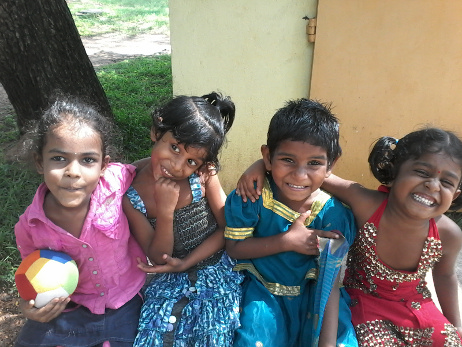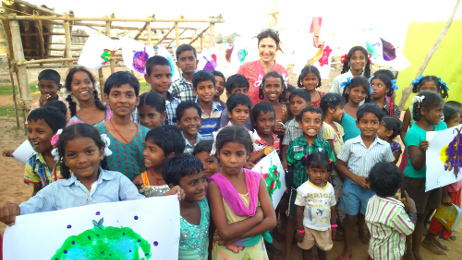-penned by Board Member Alo Pal and Communications Intern Tanay Kagal
One of Sharana’s main objectives has been to send children from the streets and slums to school, keeping them from harm and abuse. Once they are in school our next objective is to prevent dropouts, and have regular follow-ups with parents and schools on problems and progress. But with going to school come the summer holidays, and Sharana had to come up with safe spaces and activities for the children so as to prevent any relapse into abuse, exploitation and general inattention of the children. That is how Sharana’s Summer Camp began, a programme that has undergone several iterations ranging from out of station trips, residential summer camps to day camps for our children.
It may be noted that while older children of the Back to School programme tend to pursue some sort of coaching or academic activities in their homes during the holidays, many spend the holidays with their grandparents.
The Summer Camp took place in Solai Nagar, where the Sharana Social Center is located, as well as Angalakuppam, a village in Puducherry bordering Tamil Nadu. This year for three weeks about 150 children from both locations attended the camp.
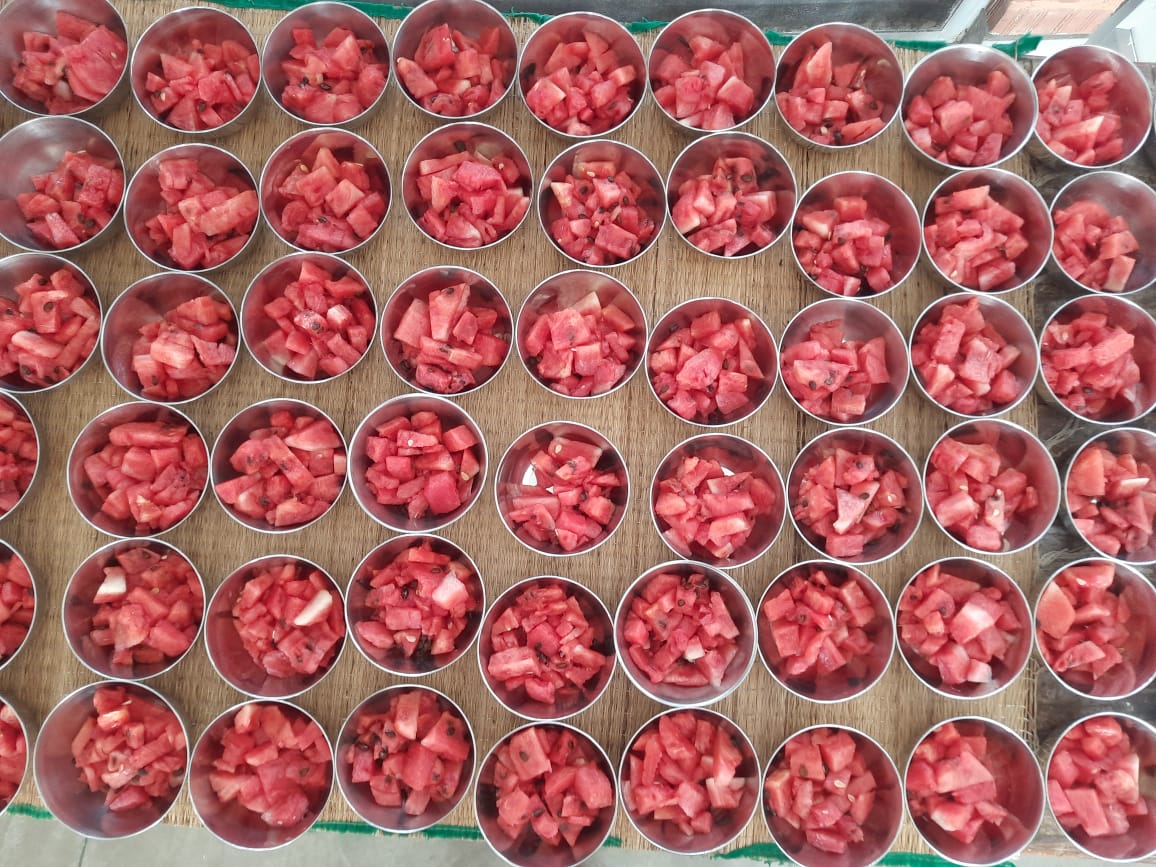
A nutritious meal is something that might seem commonplace to many but for these children it is not always so. In government schools and government-aided schools the children are given lunch, but during the summer holidays it is not always granted that they might receive three or even two meals a day.
Every morning at 11:00 am they were given fruit juice, during a break between activities. They were given lunch at 1:00 pm with sufficient protein and vegetables, and were encouraged to take several helpings. At 4:00, before leaving, they were fruits which they might not always have access to. They were also often given bread to take home with them, donated by a popular bakery in Puducherry.
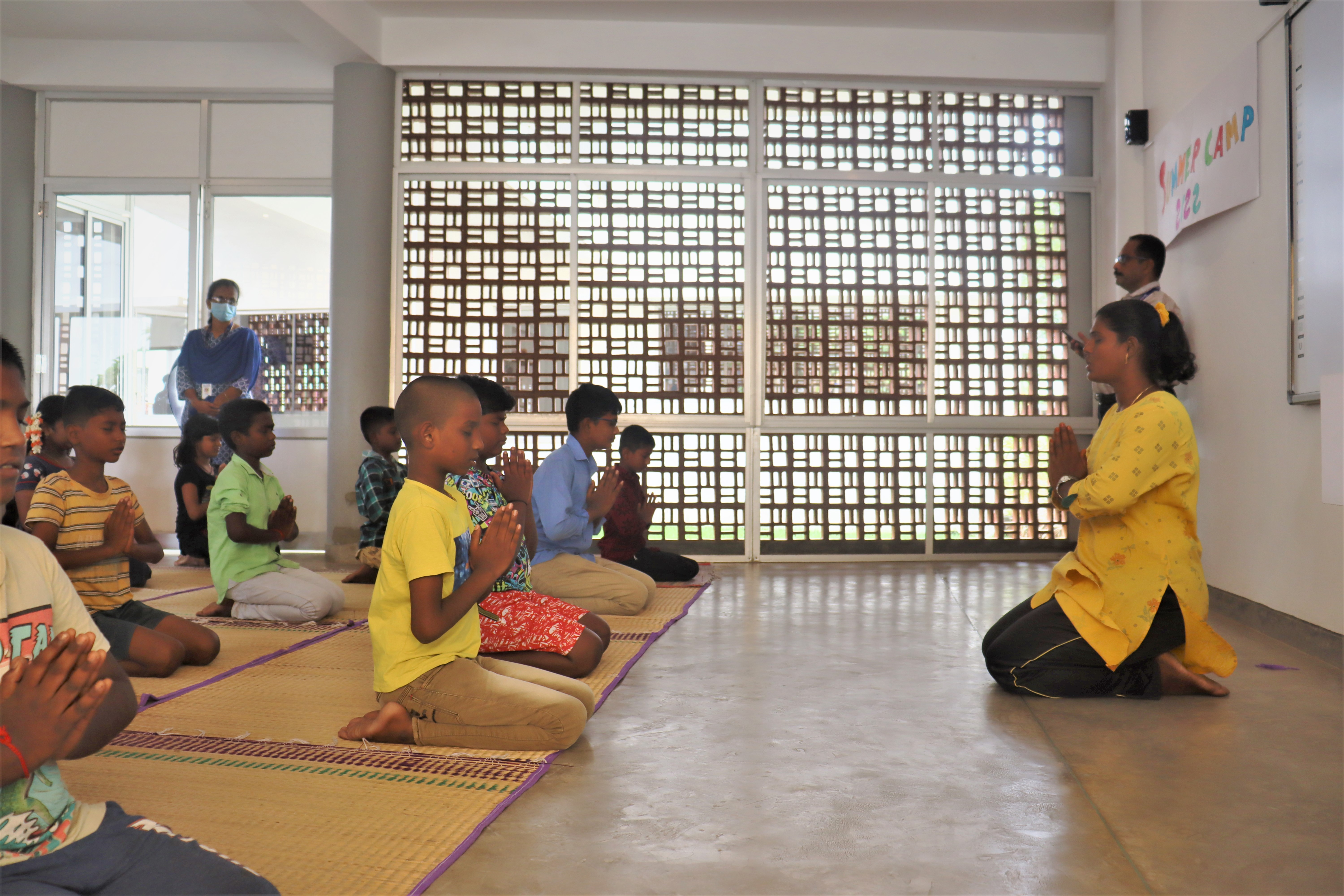
Yoga Instructor Nithya conducting a session with the children
The children came to the Centres between 9:00-9:30 am. Everyday they did yoga asanas and meditation with instructor Nithya. Between 11:00 and 1:00 they performed various activities, such as expressive art sessions and art therapy, games, reading , arts and crafts as well as educational and awareness activities.
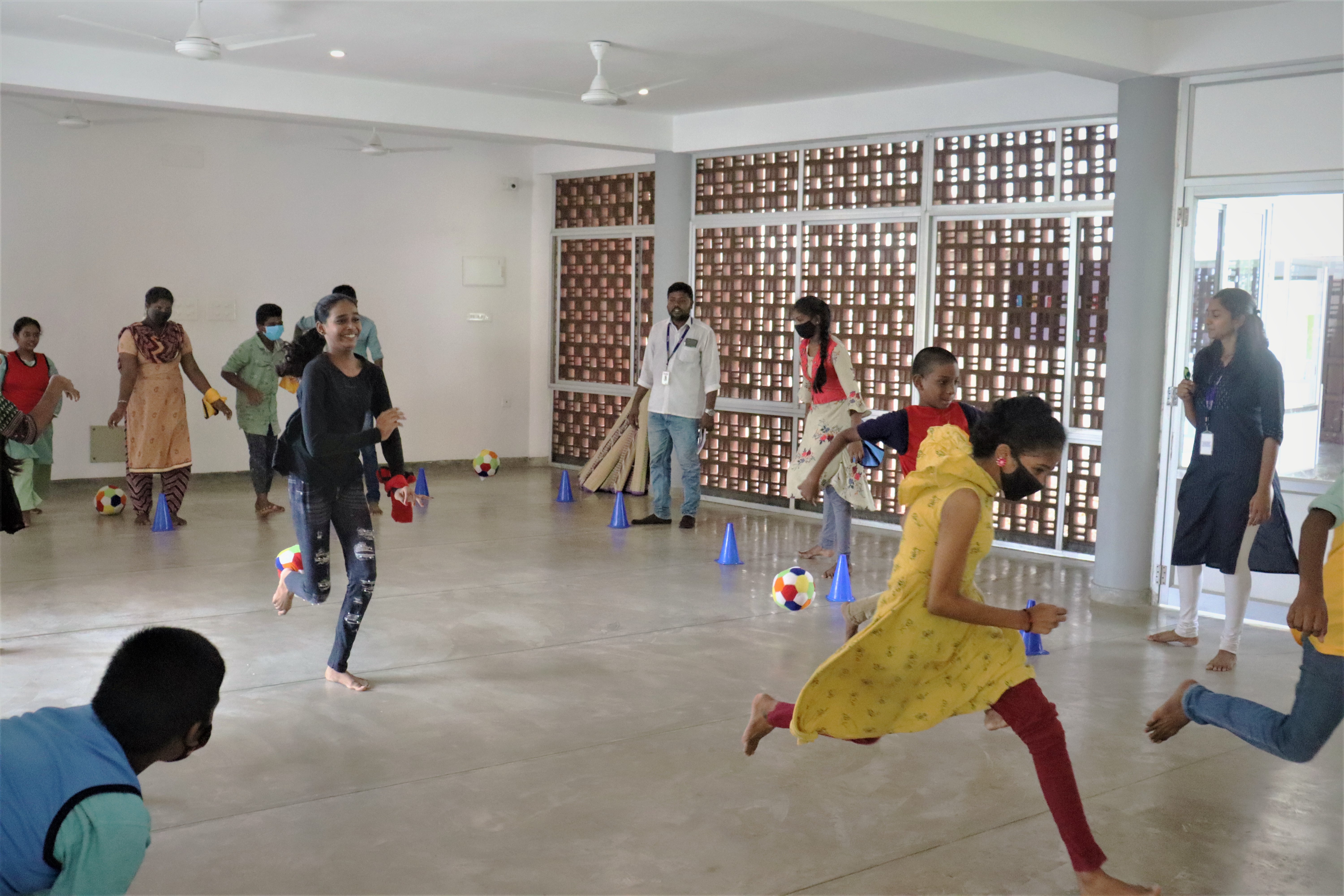
A Seeds of Change session on ocean conservation
We also have a program called ‘Seeds of Change’ that aims to raise awareness about environmental and social topics through sports and games, of which we conducted one session per week. The program is currently led by Harshitha and Chandru. Manuel, our in-house Intermodal Expressive Arts practitioner who is also an Art Therapist, conducted several sessions in both camps. Intermodal Expressive arts is the practice of using imagery, storytelling, dance, music, drama, poetry, movement, dreamwork, and visual arts together, in an integrated way, to foster human growth, development, and healing.
After lunch they usually watched a movie or television shows for children or played board games. In the meantime, a few children rehearsed for a cultural program that would be presented at the end of the camp.
At the Angalakuppam camp, the yoga sessions were conducted by Mr. Mahalingam. Every morning there were Hygiene Awareness sessions by Madhimala, a nurse at our Angalakuppam Community Centre. Our Social Workers and Program Managers often alternated between the Social Centre and the Angalakauppam Centre to facilitate the activities, which are around 15 kms apart.
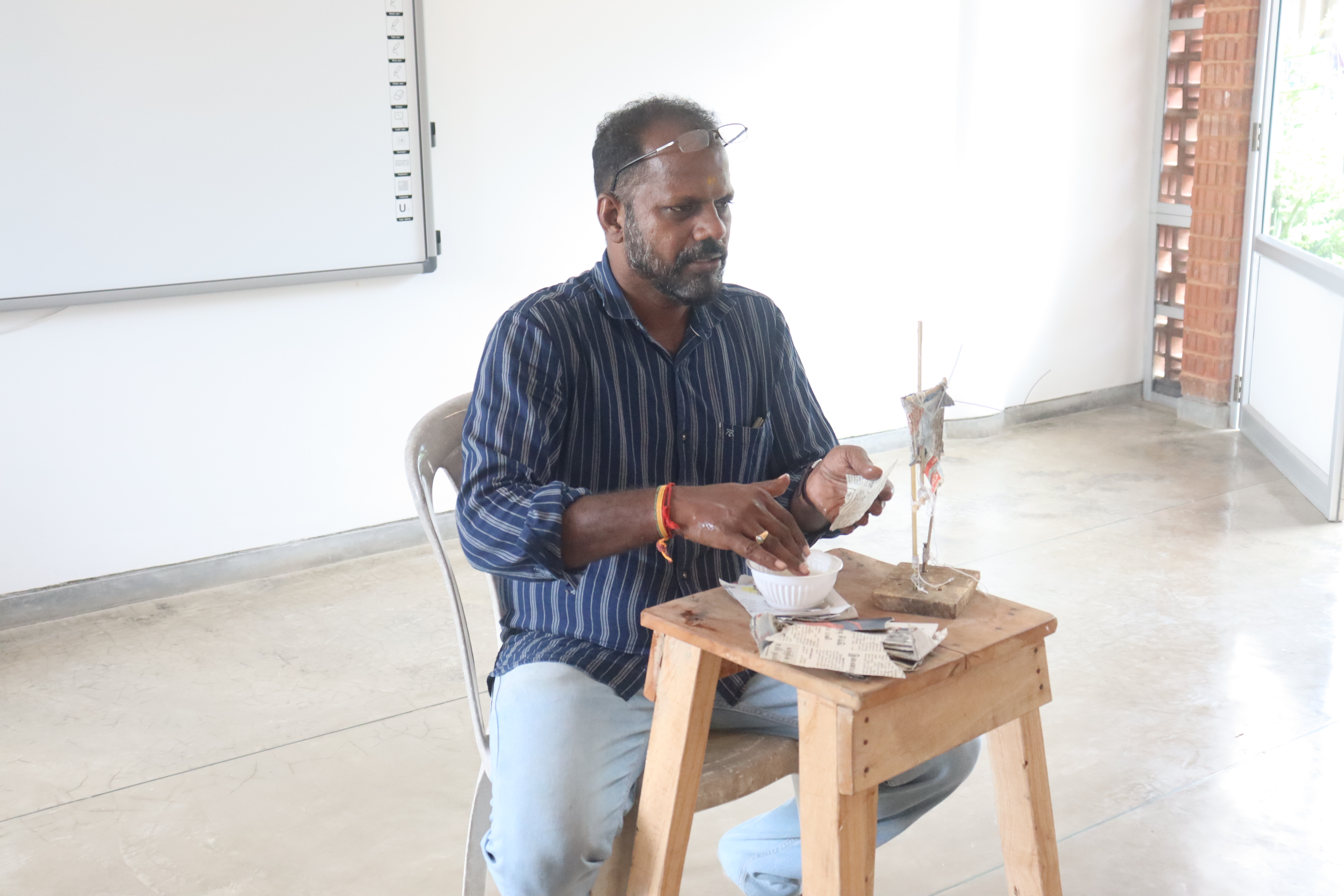
Mr. A Krishnan during the newspaper sculpting session
We also had several experts come and visit Sharana to either speak to or engage the children in some activity. For example, Mr A Krishnan, an artist, showed the children how to make newspaper papier-mache sculptures. Other speakers spoke specifically to adolescent children about the physical and social changes that they will experience going forward.
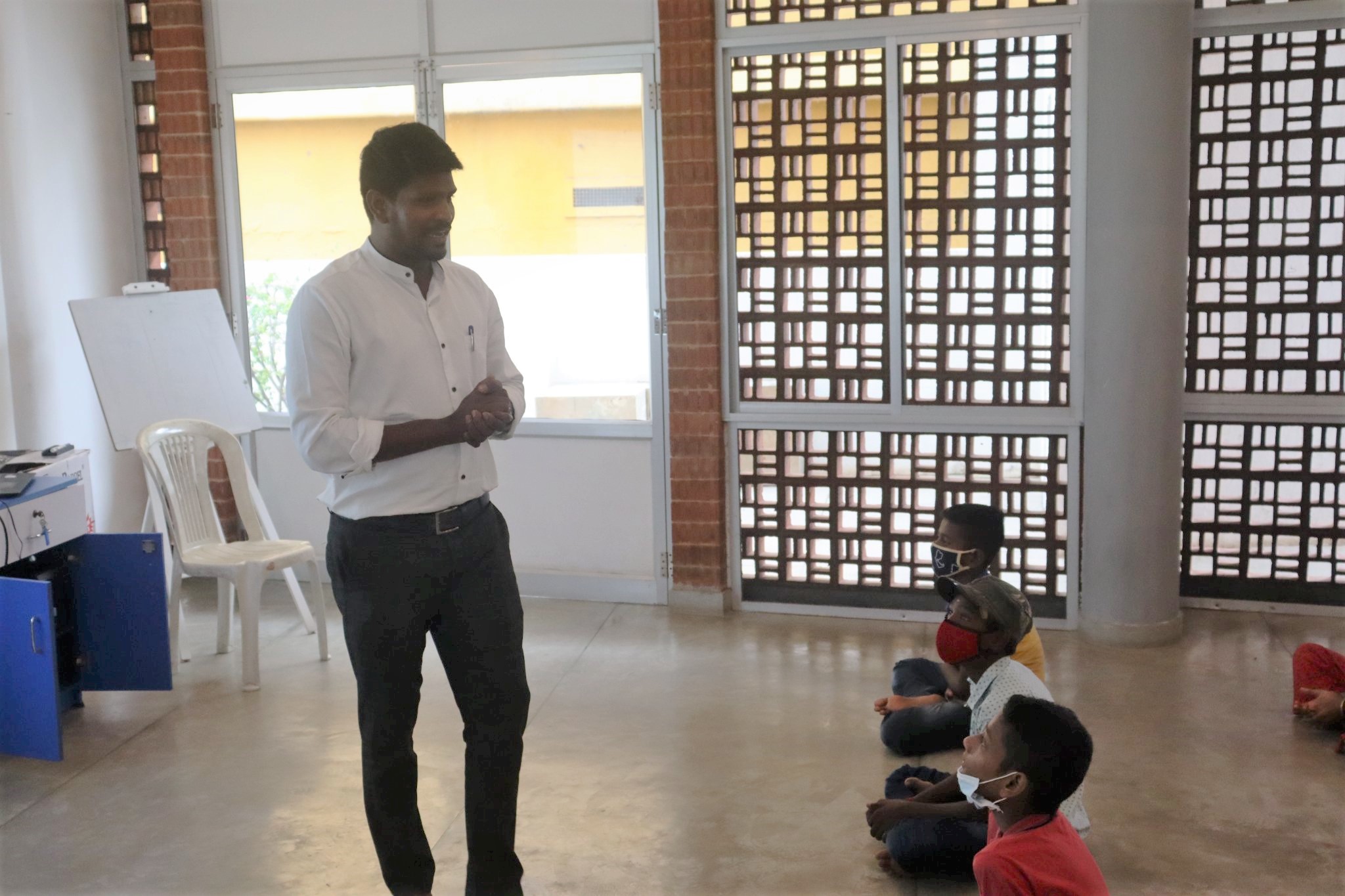
Mr. Karthik Balaraman from Ocean Academy, a Consultancy and Software Training Centre, spoke to children aged 11-14 about Safe Internet Use and Substance Abuse.

Priya was supported by Sharana’s Back To School Program from 3rd standard to college. She now works at Indira Gandhi College and Hospital. She conducted a session about awareness on hygiene and the importance of vaccinations.
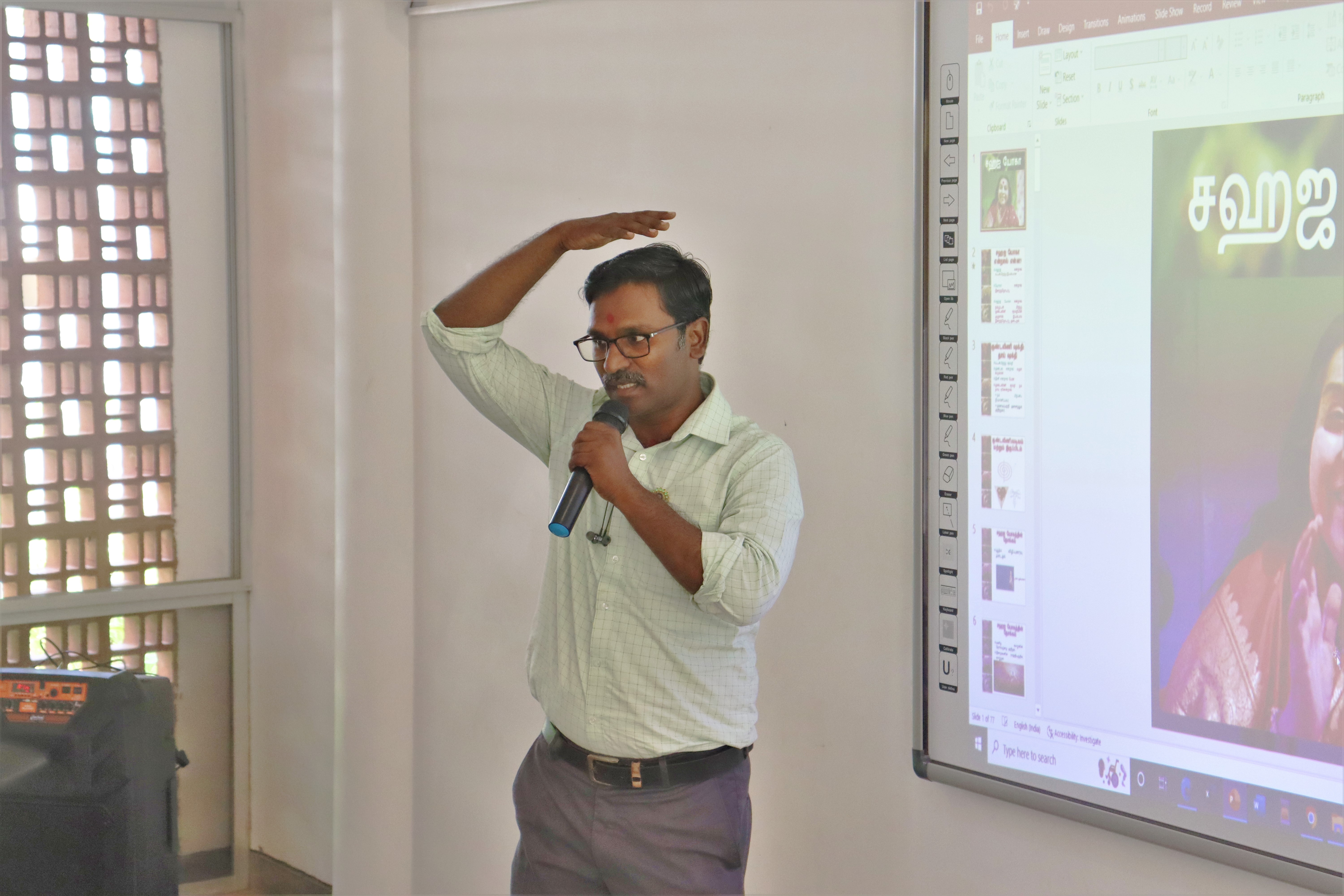
Dr Bhaskar conducted a session on becoming aware of inner energy (Kundalini) that flows through the energy centers in our bodies (Chakras)
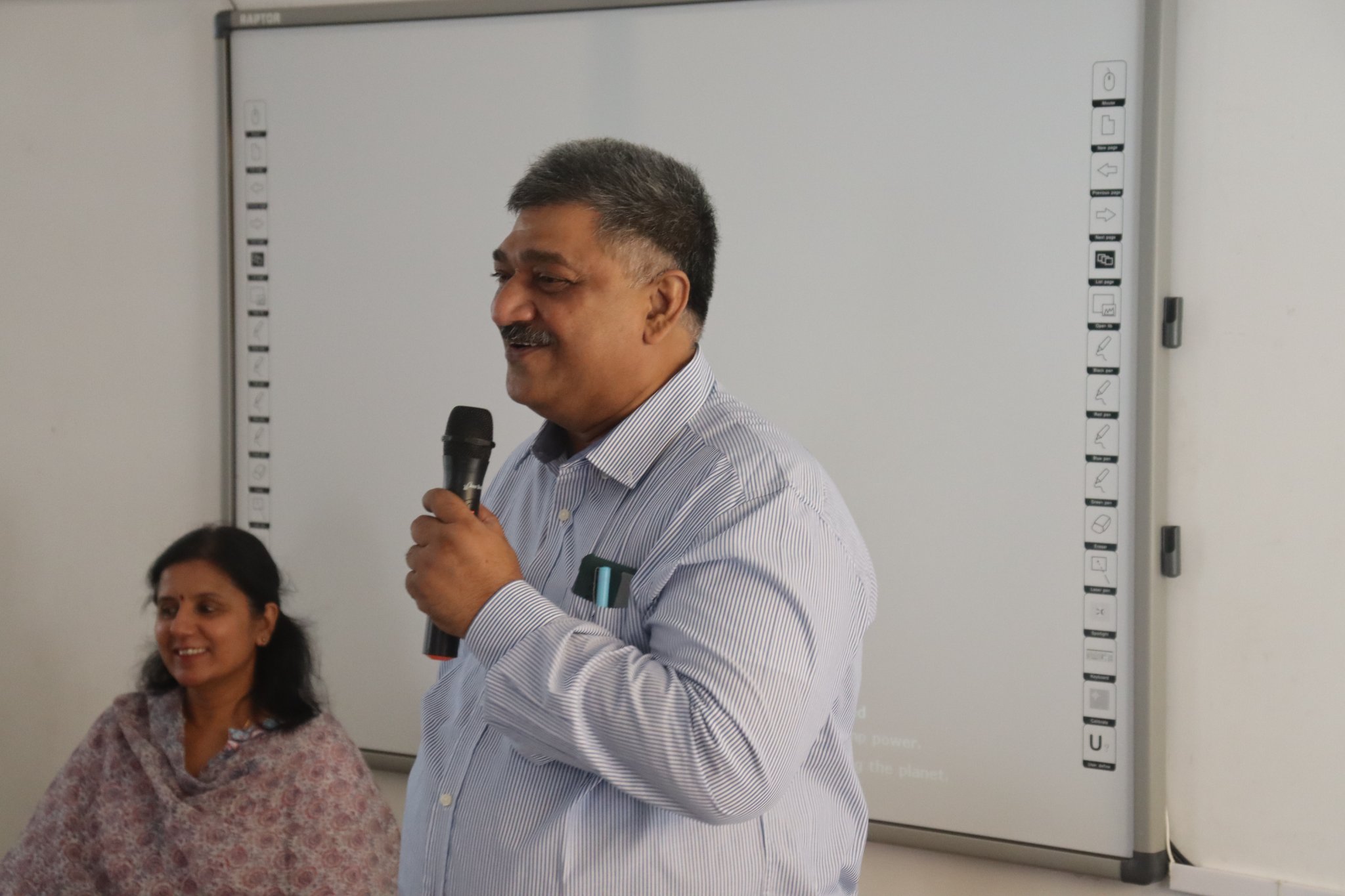
One of our guests was Dr Bascarane, Superintendent of Police, Vigilance & Anti-Corruption cum Wireless & Control.
Dr. Bascarane spoke about the importance of education, self-confidence and tradition. He also demonstrated the MITRA app developed by him, which sends the location of the caller immediately to the nearest Police Station. He also made the children aware of the emergency helpline number ‘112’. which is an integration of Police, Fire and women helpline numbers.
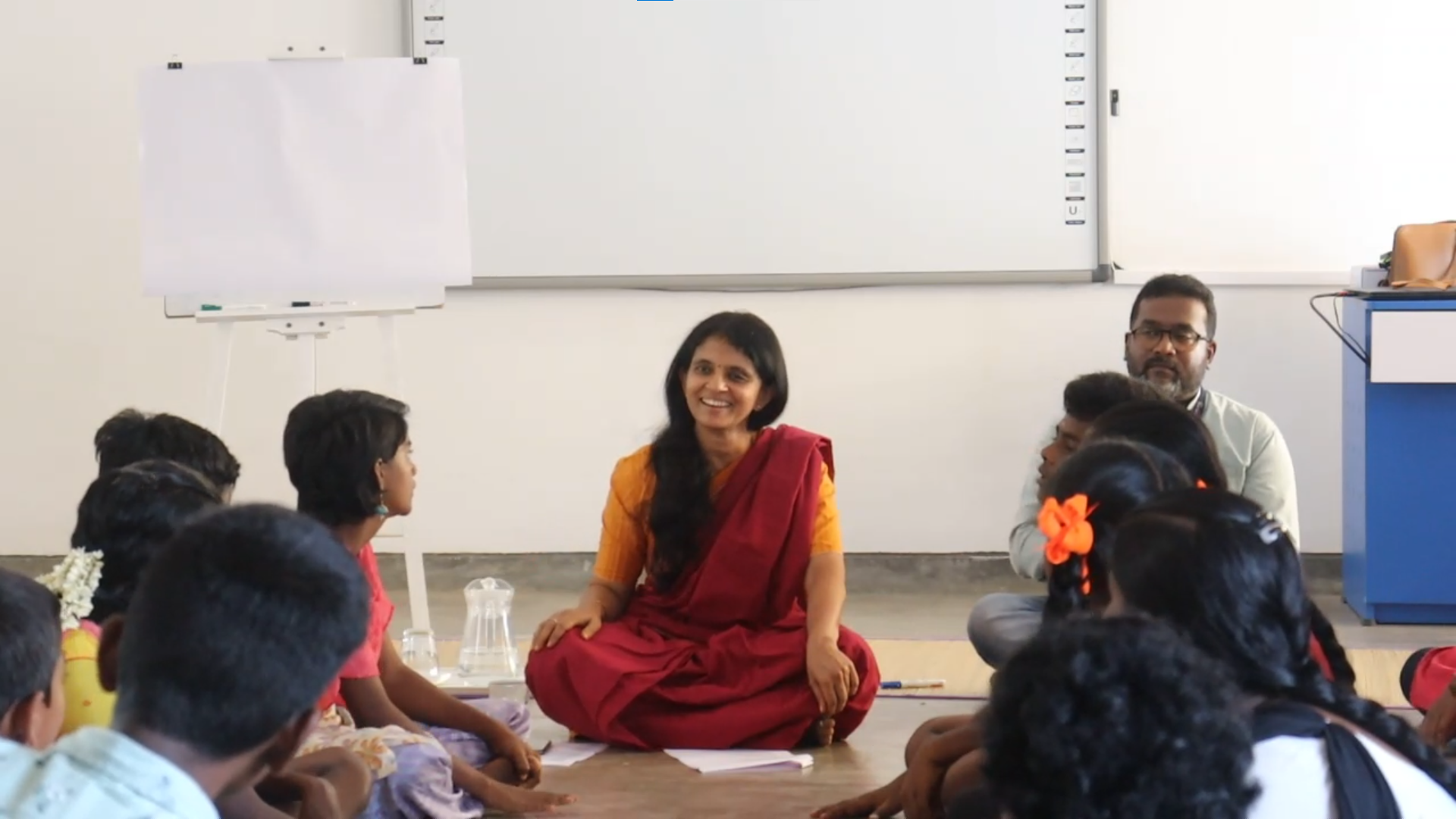
Board Member Dr Deepa Reddy, who is a cultural anthropologist and also has a beautiful voice, spent some time with the children, teaching them mantras and rhythms.
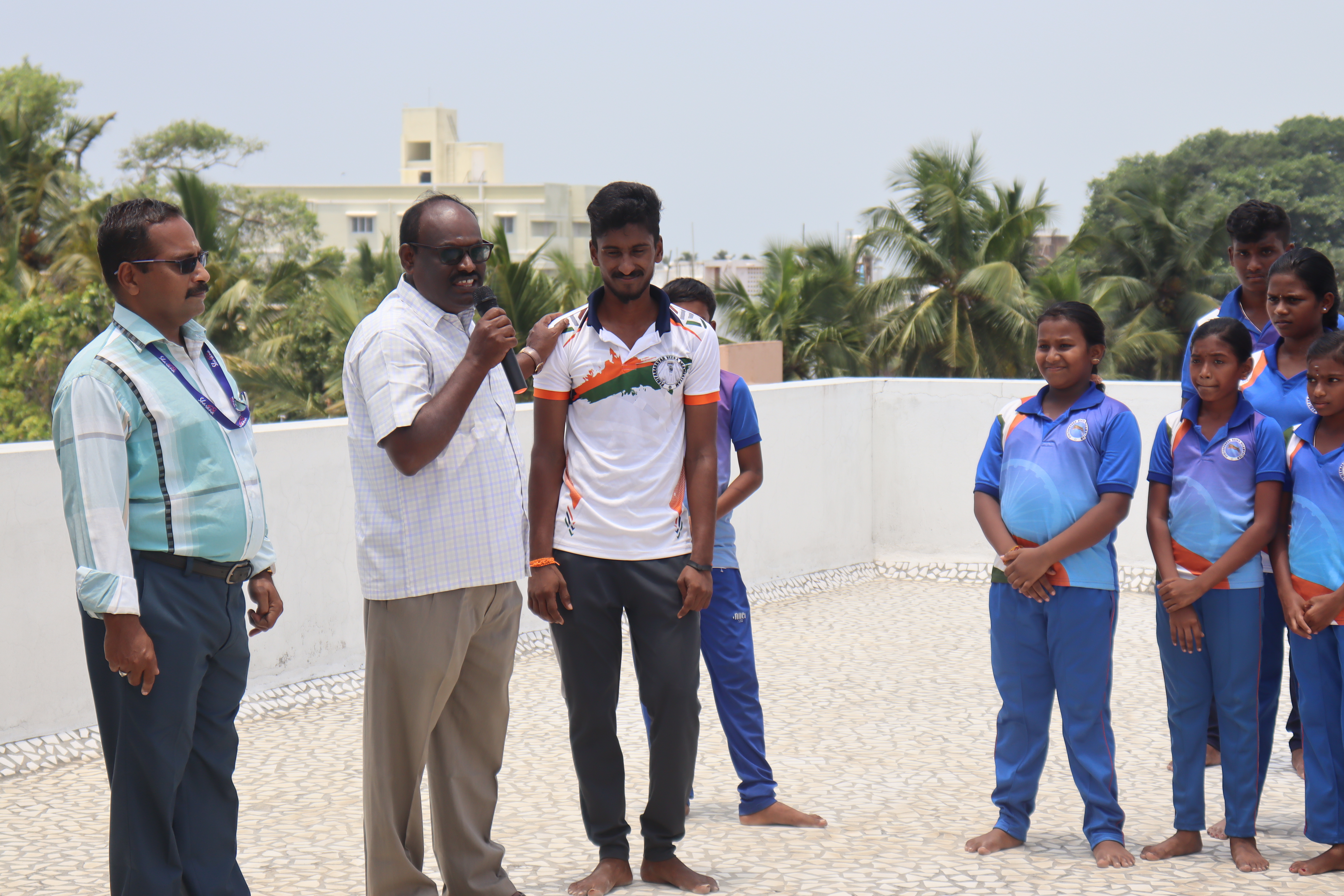
Mano with CFO Mr M Murugaiyan and Program Manager Mr. Ravianand
Silambam coach Mano and his students put up a magnificent show. Mano has been supported by Sharana from 2012. He is now in the second year of his B.Pharm. course at Mother Theresa Post Graduate & Research Institute Of Health Sciences. He, along with his brother who is also a Silambam instructor and their students, demonstrated Silambam to the children, who cheered enthusiastically. Incidentally, many of his students were previously beneficiaries of our Angalakuppam Community Centre.
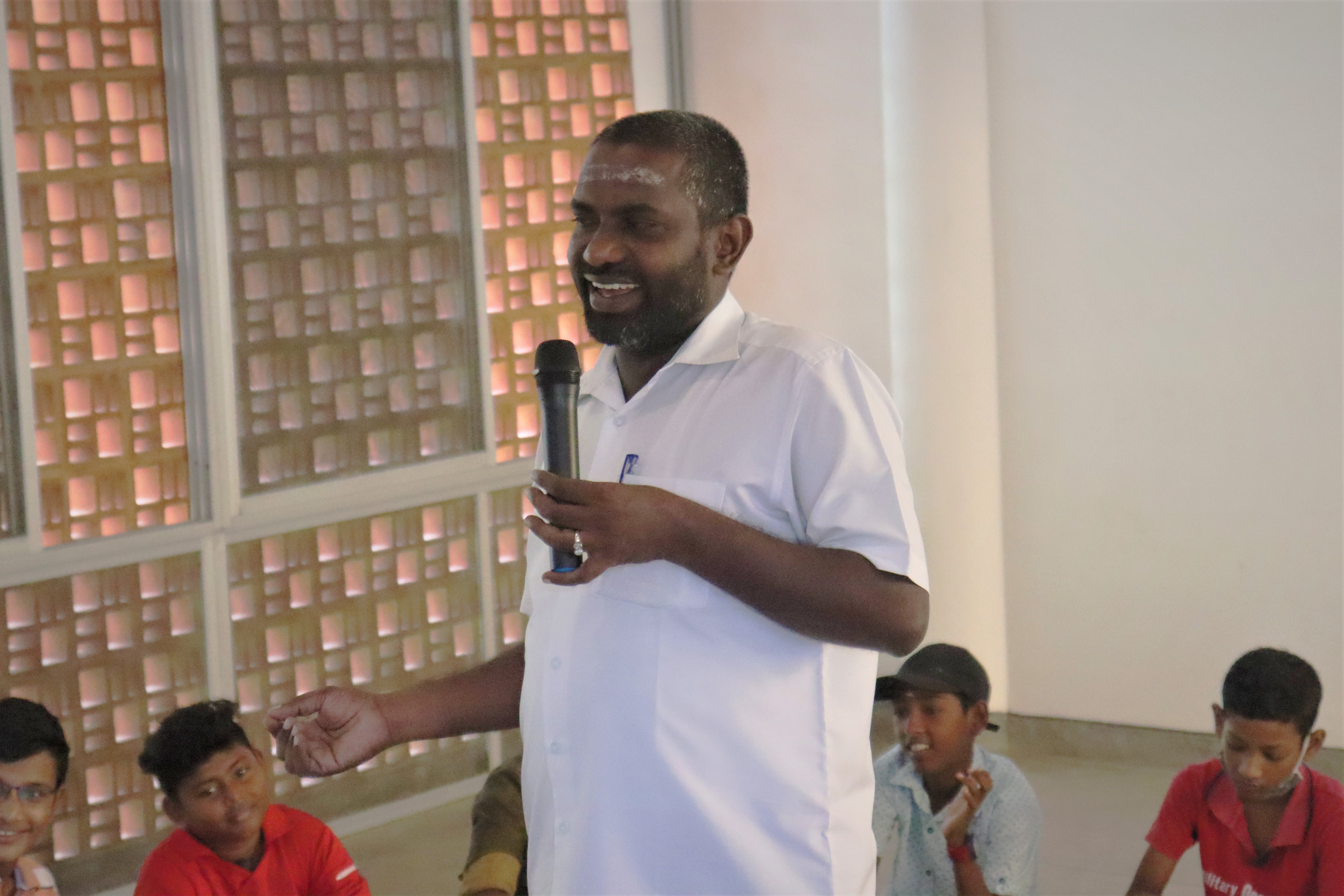
Mr. Kannan is a family counselor at All Women’s Police Station in Puducherry. He spoke to adolescent children about investing in their future and passions.
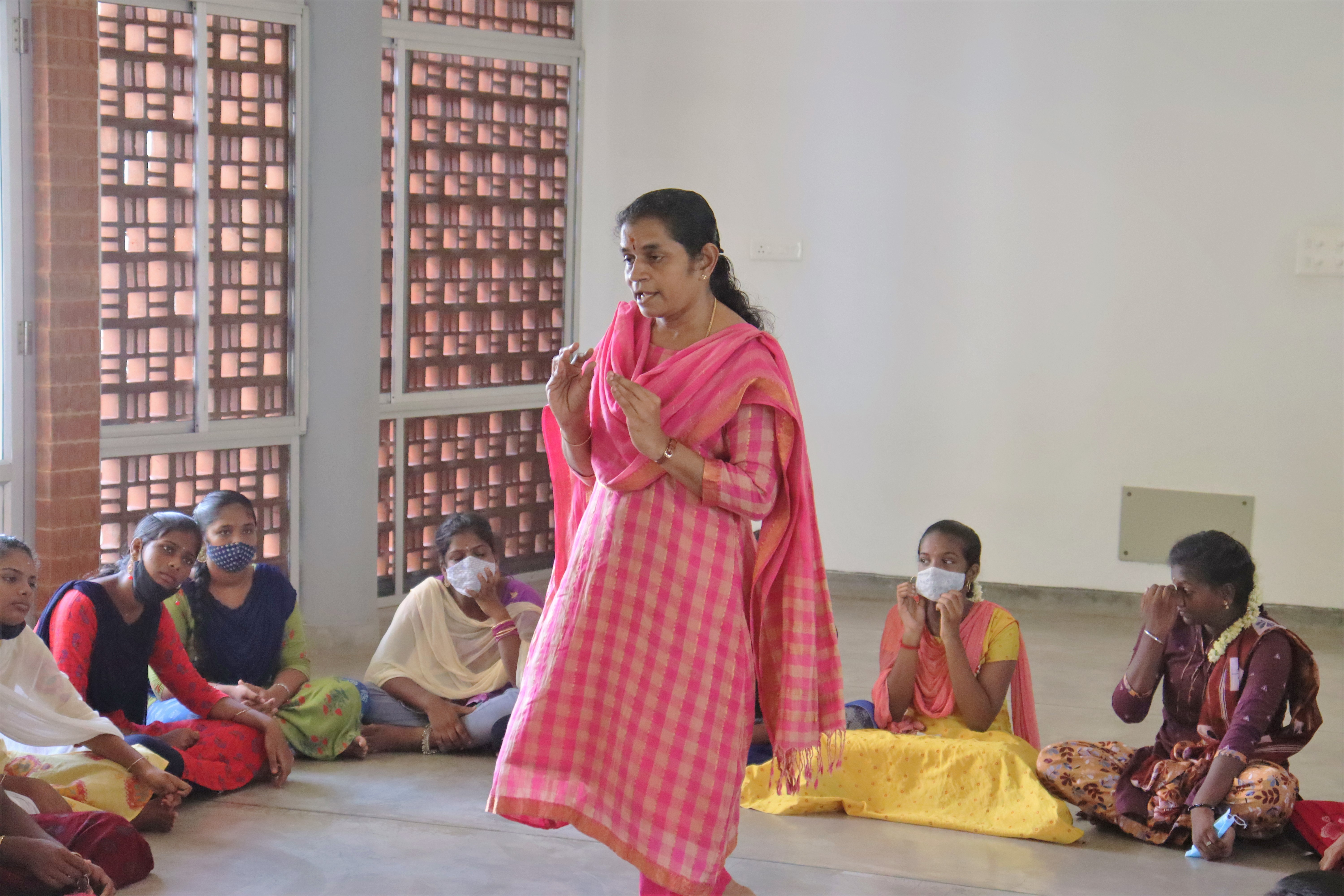
Dr. Bhuvaneshwari from Kasturba College for Women came to speak to adolescent girls. She spoke about the changes that they go through at their age and the challenges they may face as women.

Ms. Jennifer and Mr. Jeni from Childline India Foundation conducted a session on children’s rights. The children also played games through which they learnt about child protection.
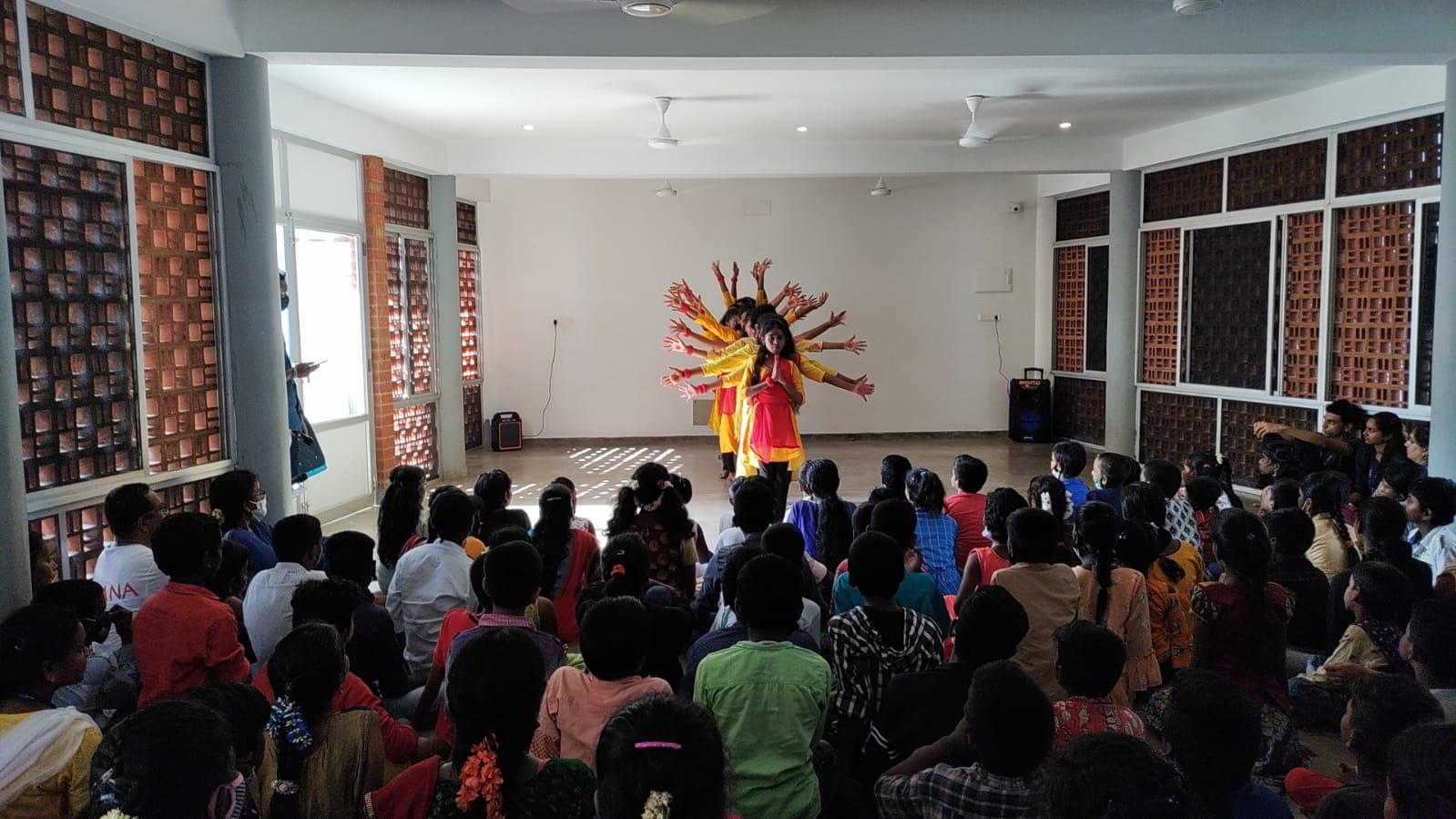
The dance performance for the girls was choreographed by Jayalakshmi, our arts and crafts teacher, to a song about women’s empowerment.
The following week we had another Silambam instructor, Arun Pravin, who along with his students demonstrated the martial art. They also demonstrated several self-defense techniques for girls.
The cultural program was the culmination of several activities in the summer camp. There was dance, mime and a sequence of yoga asanas. These performances were prepared over the course of three weeks through rehearsals held everyday. The mime performance came together spontaneously after various exercises conducted to let the children out of their shells. Next, we encouraged them to get into partners and come up with a story on their own.
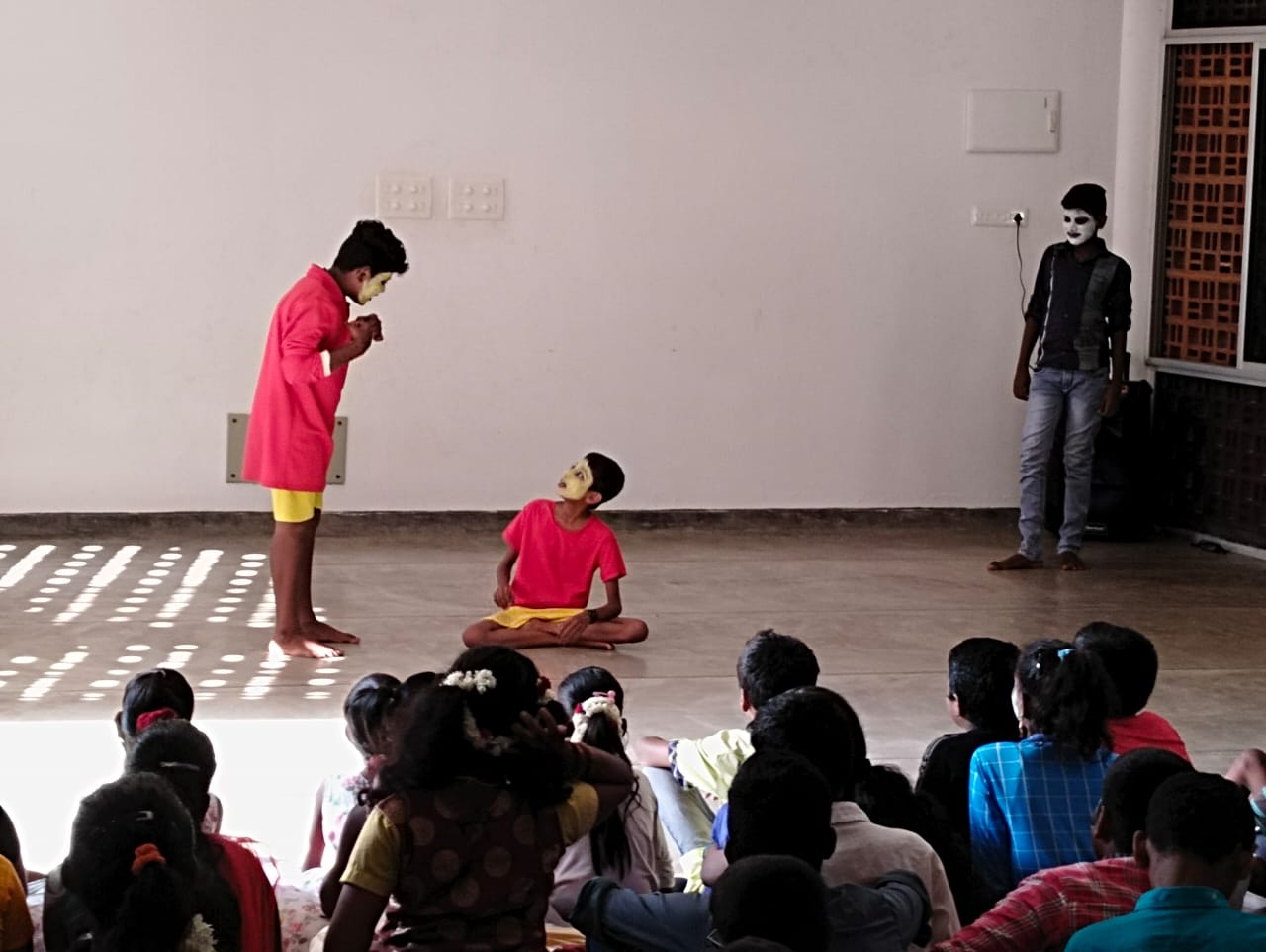
The mime performance was facilitated by intern Tanay and Mr Manuel.
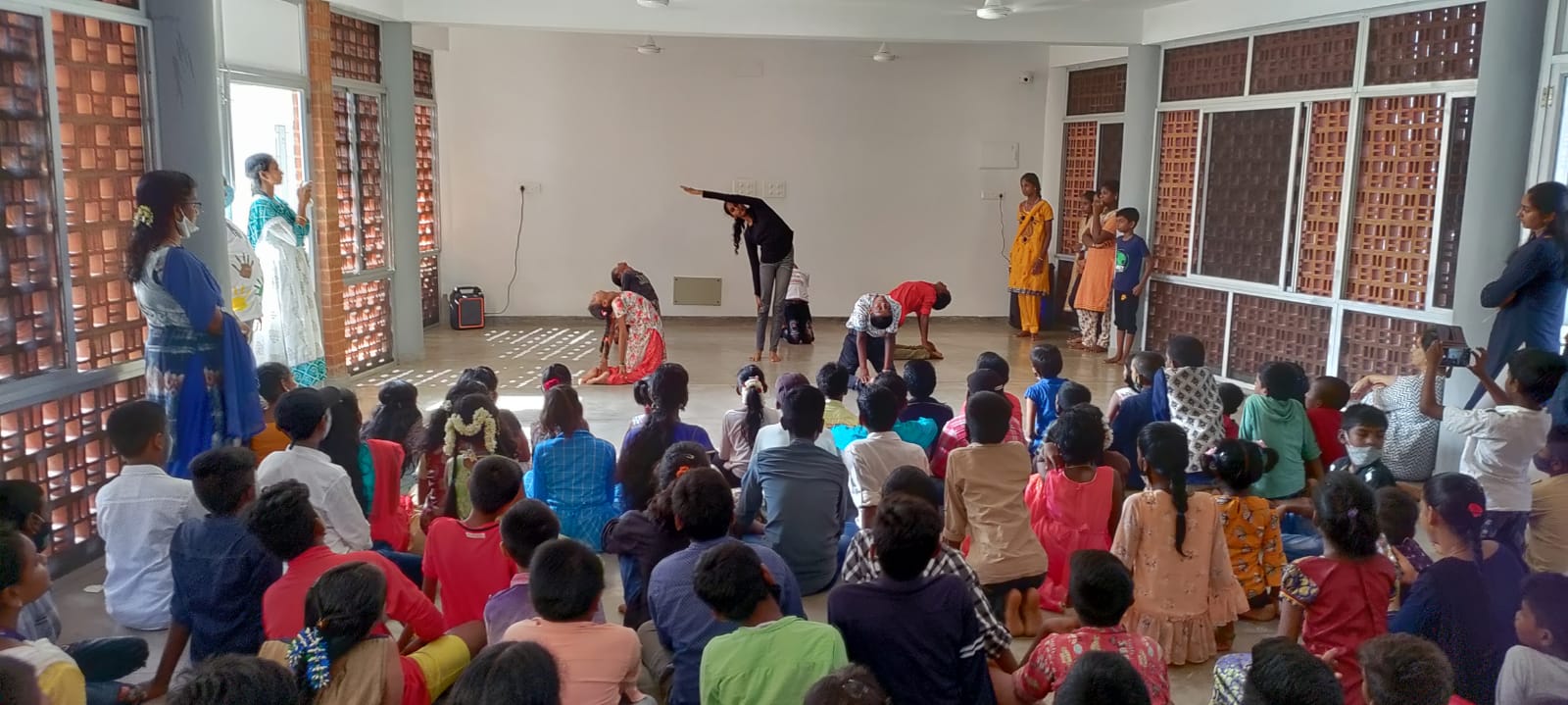
The yoga asanas performance was put together by Program Manager Ravianand and staff Sugumari from the asanas they learnt over the three weeks.

A dance program for younger children choreographed by volunteer Aastha and intern Harshitha.
These children might not necessarily get such opportunities to perform otherwise. It is heart-warming to see these parents witness events like the cultural program. Several parents and children also took the mic to thank Sharana for their efforts during the Summer Camp.
Overall, the Summer Camp is much more than keeping children occupied during the summer holidays. These children have a lack of positive role models in their life. We hope the 25 staff members, including volunteers and interns, and 15 resource persons have filled this gap in their lives during these three weeks.
For many privileged families, summer holidays mean traveling, meeting family, having fun with friends or siblings, and to sum it up, making memories. The children who attended don’t necessarily have the luxury to do these things. They might be forced to study, or work, or be left unattended on the streets where they are vulnerable to exploitation. At the summer camp, they are given the choice to have fun, learn and be creative, all the while being provided a safe space during most of the day. We hope that this year’s summer camp will be a happy memory for them.
(Since the summer holidays have been extended till the 23rd of June, the summer camp will continue for another two weeks.)








